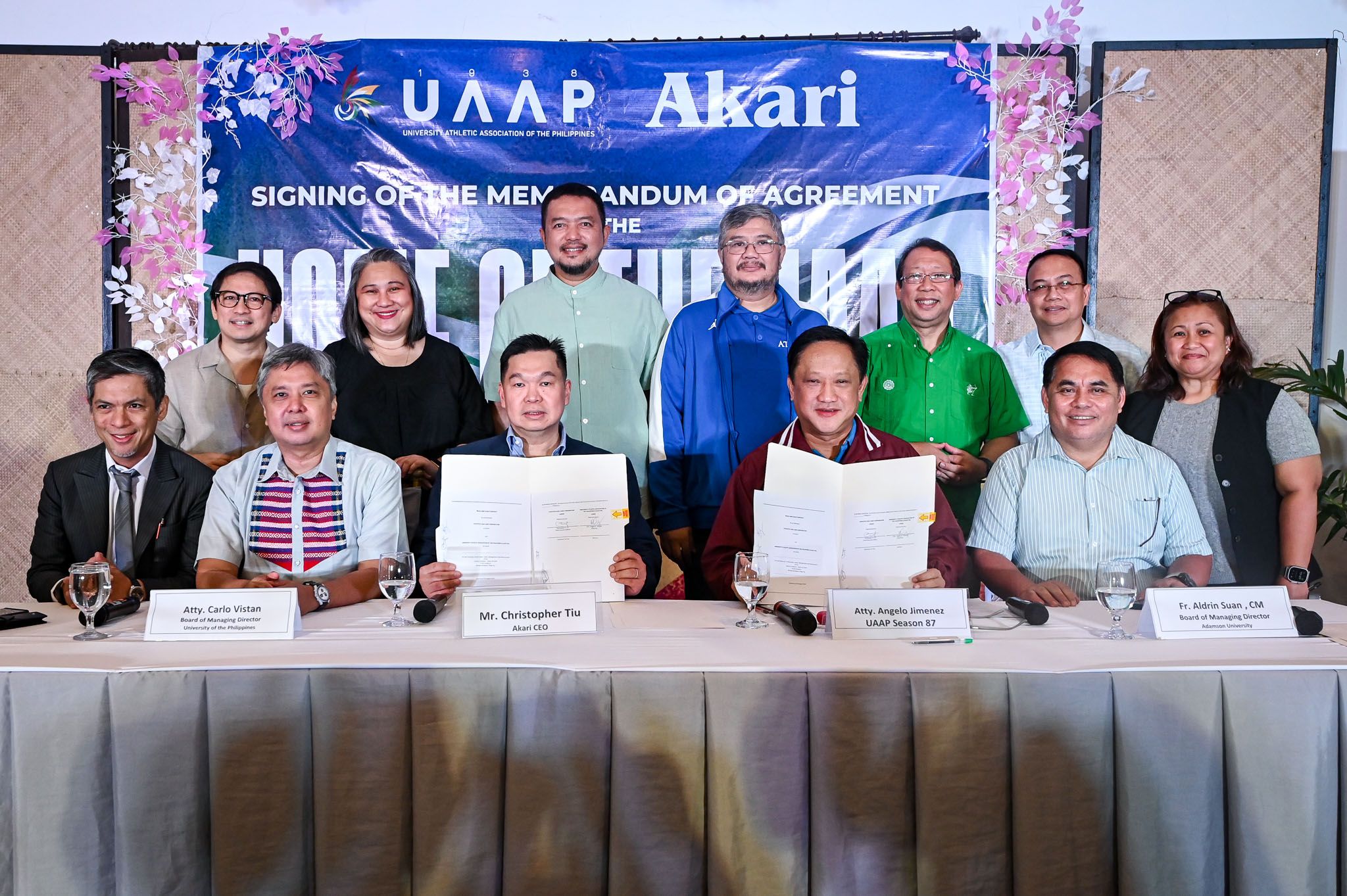At A Glance
- The University Athletic Association of the Philippines (UAAP) has partnered with Akari Lightning & Technology Corp. to build a 6,000-seater "Home of the UAAP" at Bridgetowne in Pasig City.
The University Athletic Association of the Philippines (UAAP) has partnered with Akari Lightning & Technology Corp. to build a 6,000-seater "Home of the UAAP" at Bridgetowne in Pasig City.

UAAP Executive Director Atty. Rebo Saguisag and Akari CEO Christian Tiu announced their collaboration during the signing of the Memorandum of Agreement on Tuesday, Aug. 20.
The project, which is being aimed to be completed in 2027, intends to give the student-athletes and the fans better experience and accessibility due to its proximity from the participating squads.
"Do not think that this is a win for UAAP and for Akari at all, as I’ve mentioned our partners have figured prominently and consistently in the Philippine sports landscapes,” said Saguisag in a press conference at the Atencio-Libunao Hall inside UP Diliman in Quezon City. “Mindful that whatever is good for us, should be done to the benefit of the country.”
"The Home of the UAAP is not just for the league itself; it is for the student-athletes who represent the heart and soul of the UAAP. This is their home – a place where they can compete, grow, and thrive," Saguisag continued.
The Home of the UAAP’s exterior design is inspired by the number of participating teams which is eight, while also highlighting eco-friendly facilities at the venue.
“The concept evolved from Akari's desire to collaborate with the UAAP through merchandise licensing, which we launched last season, and has now blossomed into this groundbreaking partnership," Fr. Suan added.
Tiu underscored that they are open to cater other leagues aside from UAAP.
“Yes, we’re open for other leagues, hindi lang sa UAAP” said Tiu.
Despite having its mini stadium, UAAP will continue to stage its games in other venues like Smart Araneta Coliseum and Mall of Asia Arena.
Asya Design, which is led by architect Albert Yu, will lead the construction as they target to complete the project in Season 90.
Aside from basketball and volleyball, the stadium will be utilized for other indoor sporting events.